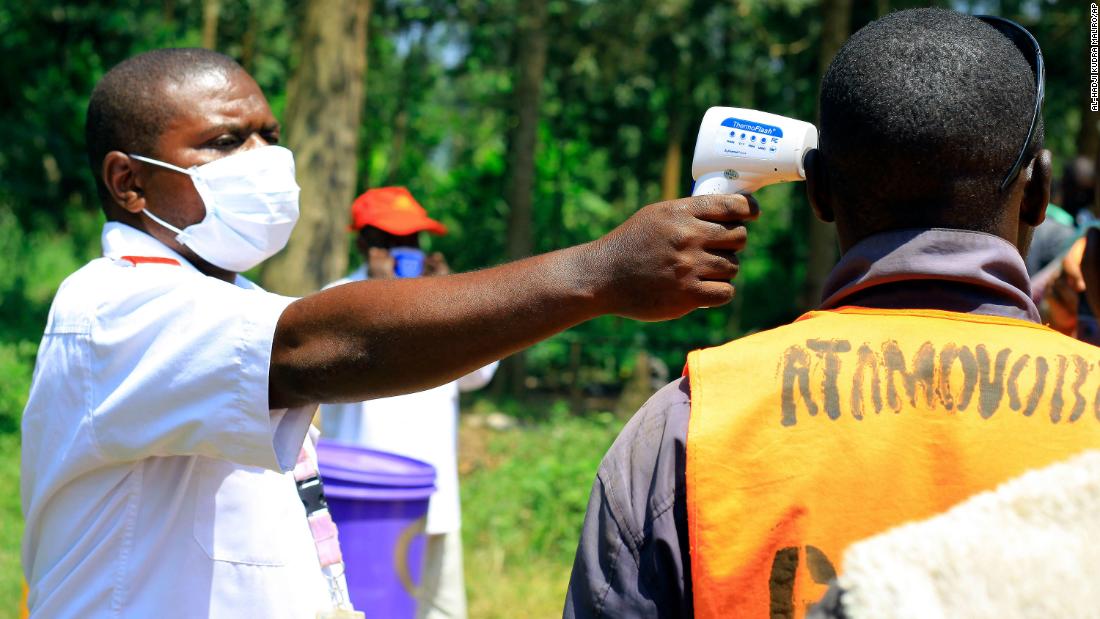
Five experimental Ebola therapies have been approved to treat people infected with the Ebola virus, said WHO spokesperson Tarik Jasarevic. Two are already in use and the other three will follow suit.
"This is a major advancement in an Ebola response," Jasarevic told CNN, adding that it's hoped that more recoveries will soon be reported.
As of August 25, a total of 111 cases were reported, of which 83 are confirmed and 28 probable. This includes 72 deaths.
Fourteen health-care workers have been infected, with one dead.
The cases have been reported in five health zones in North Kivu province and one health zone in Ituri, but all the cases have been traced back to the outbreak's epicenter in Mabalako, according to the WHO.
Vaccination also began among those at risk of infection, though children below age of 1 and pregnant and breastfeeding women are not eligible.
On August 20, 7,160 additional doses of vaccines arrived in Kinshasa and were to be promptly transported to Beni. An additional 2,160 doses of vaccine were expected to be shipped by the end of last week.
Two recovered
This outbreak is now bigger than the previous outbreak in Equateur province that was declared over July 24. During that outbreak, 53 cases were reported, including 29 deaths.
To aid the response, all five available experimental treatments for Ebola have been approved for use at Ebola treatment centers.
To date, 13 patients have received the monoclonal antibody cocktail mAb114 and three patients were given the antiviral Remdesivir, the WHO confirmed. Two of the people given mAb114 have recovered.
Observations and follow-up continue following the approved protocol, according to Jasarevic.
The remaining three treatments -- Favipiravir (GS5734), REGN3470-3471-3479 and ZMapp -- will be used, with each treatment chosen by clinicians on a case-by-case basis.
The treatments can be used as long as informed consent is obtained from patients and protocols are followed, with close monitoring and reporting of any adverse events.
"It's very important to monitor," said Jasarevic. "These drugs are all different."
The current outbreak was first declared by Congo's Ministry of Health on August 1, after which a rapid response effort was initiated.
The disease is endemic to Congo, and this is the nation's 10th outbreak since the discovery of the virus in the country in 1976.
The Ebola virus is transmitted from person to person by infected bodily fluids such as blood, saliva, feces and breast milk. Humans can also be exposed to the virus, for example, by butchering infected animals.
It is highly infectious but not highly contagious.
No comments:
Post a Comment